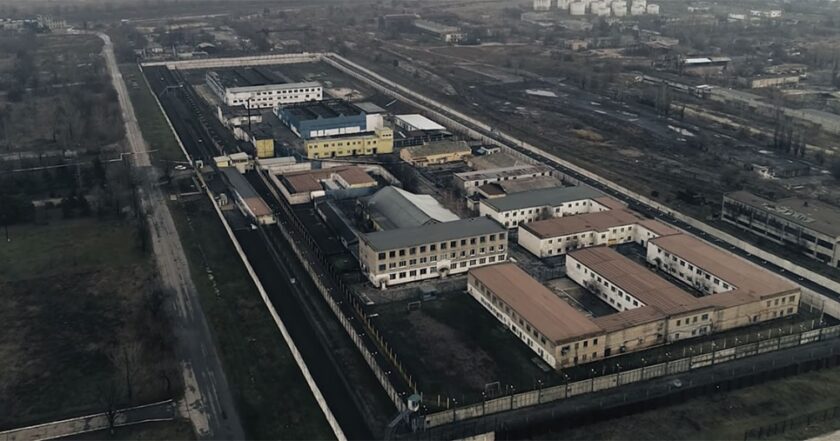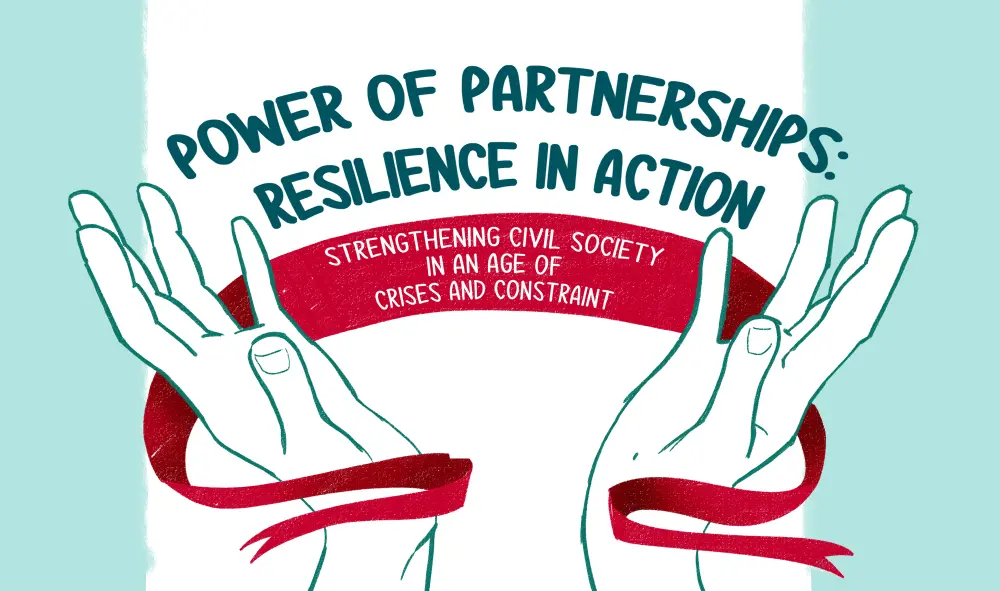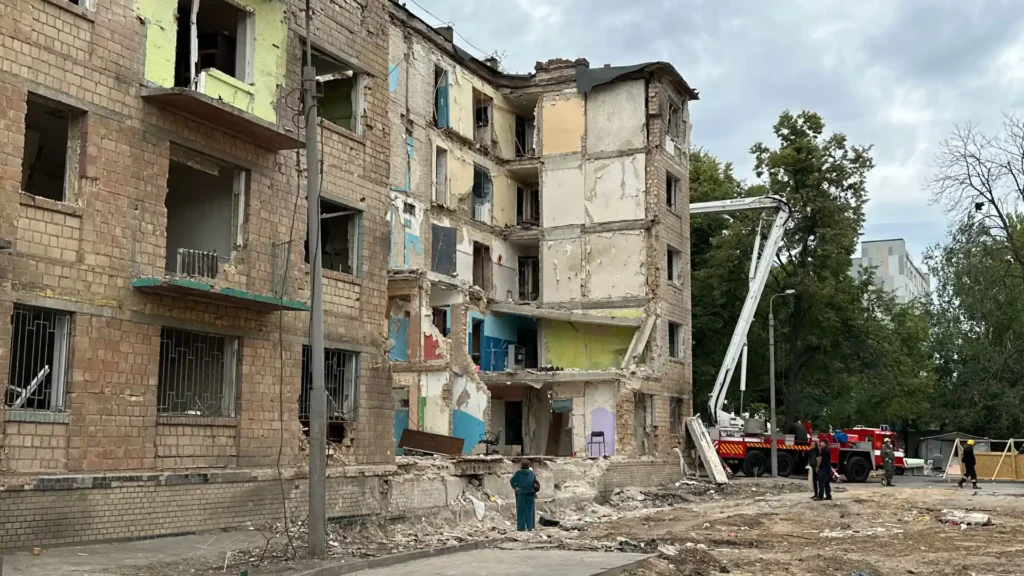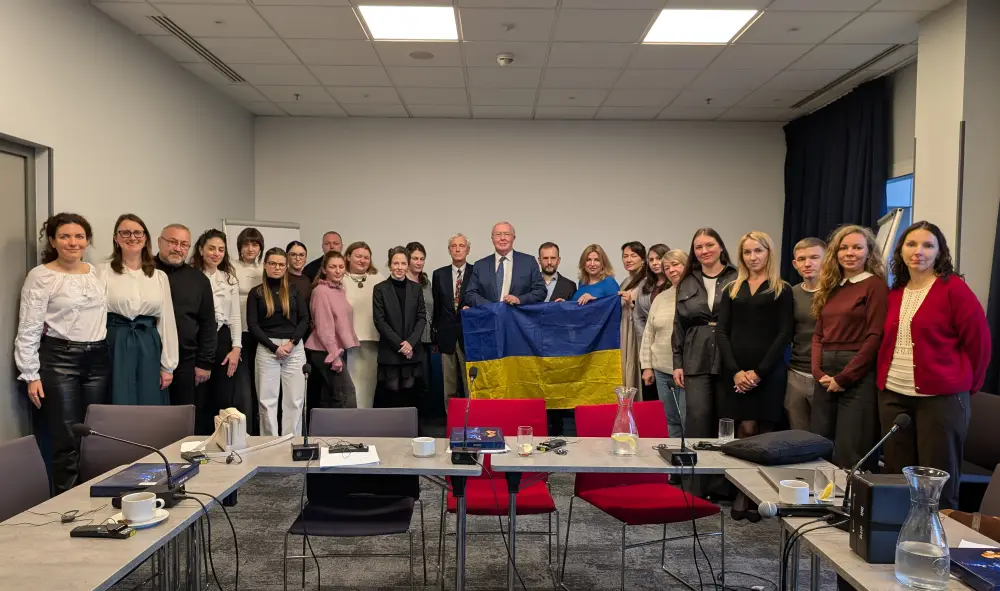Monitoring prison conditions has different forms on each side of the front line
The ongoing war in Ukraine presents a new set of challenges when it comes to monitoring the human rights situation in prisons.
DIGNITY is working with three partners in Ukraine. They all take part in the monitoring work, which takes very different forms on each side of the front line. DIGNITY legal adviser Vadym Chovgan explains:
»In those parts of the country that are occupied by the Russians, our focus is accountability – the possibility of eventually holding perpetrators of human rights and other violations of international law responsible, including before a court. In those parts of the country, we can’t visit the prisons due to lack of access. Instead, we need to rely on alternative methods, such as collection of open-source intelligence and post-factum monitoring – interviews with prisoners once they get released and manage to get to the government-controlled territory«.
Prisons in Eastern and Southern Ukraine – like the Berdianska prison have been taken over by Russian occupation forces, and prisoners are suddenly in a situation where they become the Russians’ hostages.
»We receive reports that the Russian military has placed their artillery close to prisons and keep ammunition inside prisons. If this is indeed the case, it could endanger the lives of the prisoners and would be in contravention with international humanitarian law«, says Vadym Chovgan.
Collection of evidence
Photographs, testimonies of victims, witness statements and other pieces of evidence are collected by DIGNITY and the three Ukrainian partners.
»For future accountability purposes it is important to have the evidence collected and stored safely. And it is necessary to have an understanding of the situation in prisons and other places of deprivation of liberty, which is where DIGNITY’s and our partners’ expertise lies. With the war raging and the devastating situation of ordinary citizens, there is a significant risk that the situation of prisoners and other persons deprived of their liberty, for instance in psychiatric hospitals, is disregarded. We want to prevent that. Some of the most vulnerable people, who cannot be evacuated, are in those places«, says Vadym Chovgan.
The three Ukrainian partner organisations collect the information. DIGNITY’s role is to offer knowledge on international human rights and criminal justice standards, to coordinate collection of information, and to help analyse the evidence and assist in drafting submissions to international organisations and courts such as the International Criminal Court (ICC) in The Hague. Vadym Chovgan, however, makes it clear that the Ukrainian partners act autonomously under the common umbrella of cooperation:
»In DIGNITY, we work with partners – not through partners«.
The war is no excuse for abuse
The monitoring work of DIGNITY’s partners is not limited to what takes place on the Russian-occupied territories of Ukraine:
»A lot of problems have arisen in Ukrainian prisons after the Russian invasion in February – even in government-controlled areas«, says Vadym Chovgan.
Some of the problems are directly linked to the war, such as shortage of food and other supplies.
»Unfortunately, we have also seen examples of pre-existing human rights violations, such as physical ill-treatment of prisoners, worsening in government-controlled prisons since February. And it is important to make it clear to the prison managements that the war is in no way a justification for abuse«, Vadym Chovgan emphasises.
He adds that the Ukrainian prison authorities are monitored by DIGNITY’s partners according to the same standards that were used before the war.
»But of course, there are now war-related issues that will be solved on the administrative level without being made public, such as the insufficient air-raid shelter facilities. If made public, that information could be exploited by the Russians and endanger the prisoners even more«, says Vadym Chovgan.





